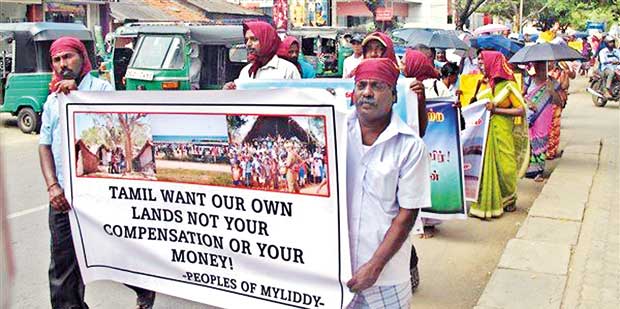Constitutionalising economic, social and cultural rights
 One of the key issues is land, as the military is occupying large chunks of land in the region
One of the key issues is land, as the military is occupying large chunks of land in the region
The current constitution of Sri Lanka does not contain judicially enforceable, economic, social and cultural rights, though they are very much a part of daily life. With the onset of the debate for a new constitution, the discourse for the inclusion of Economic, Social and Cultural (ESC) rights in the constitution has taken center stage. ESC rights include the right to education, housing and health. Though these rights are not constitutionalised people in the country have access to free healthcare and education, which signifies that the state recognizes ESC rights. Hence the question emerges as to why constitutionalising ESC rights is so important and why certain groups oppose the constitutionalizing of these rights. Proponents of constitutionalizing these rights firmly maintain that ESC rights are equally important as their civil and political counterparts. In a panel discussion held recently on this theme the panel, which mainly included the Chairperson of the Human Rights Commission, the Secretary General of Amnesty International and the Executive Director of the Law and Society Trust, countered the arguments against constitutionalizing ESC rights, and highlighted the importance of guaranteeing these rights through the constitution and providing judicial remedy when they are breached.


